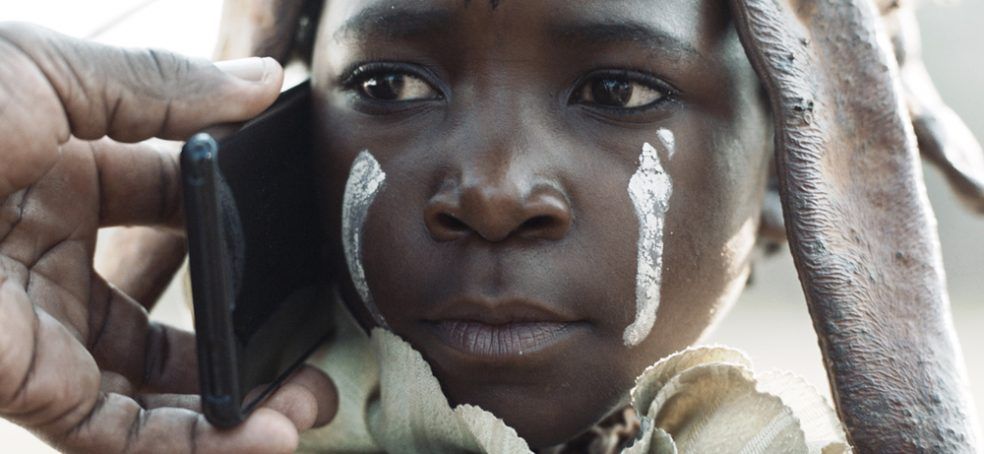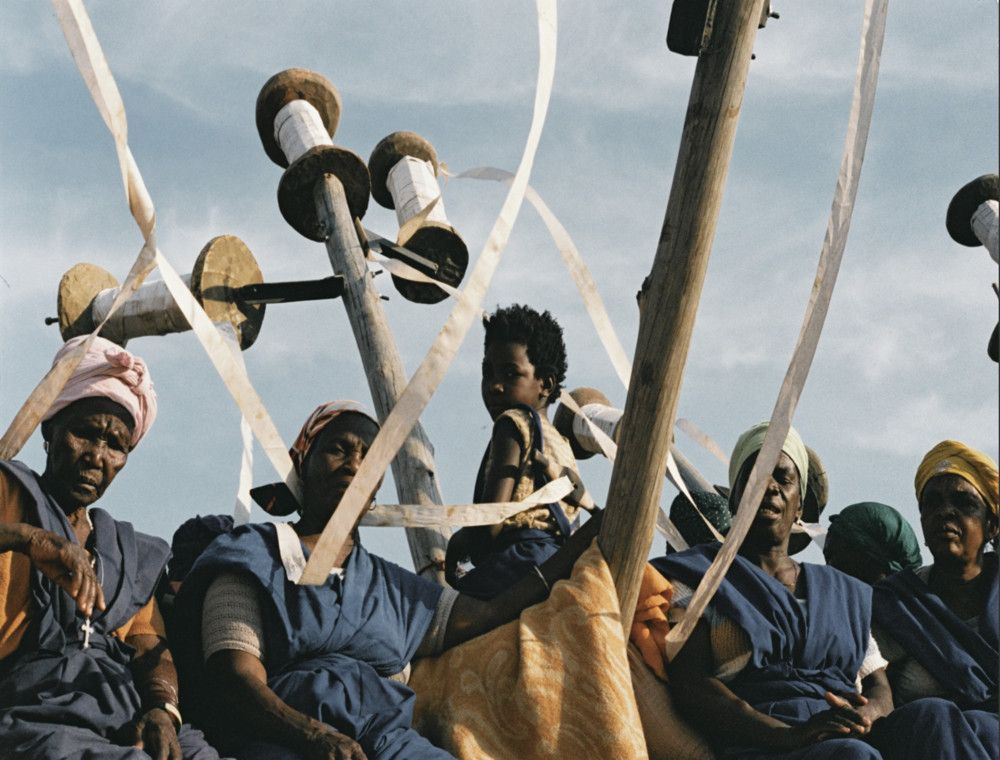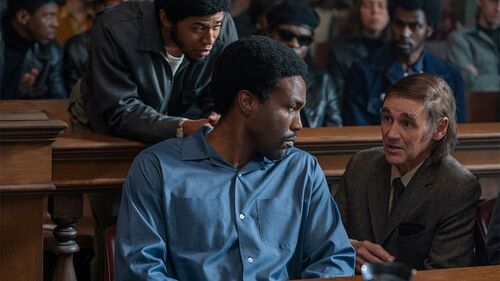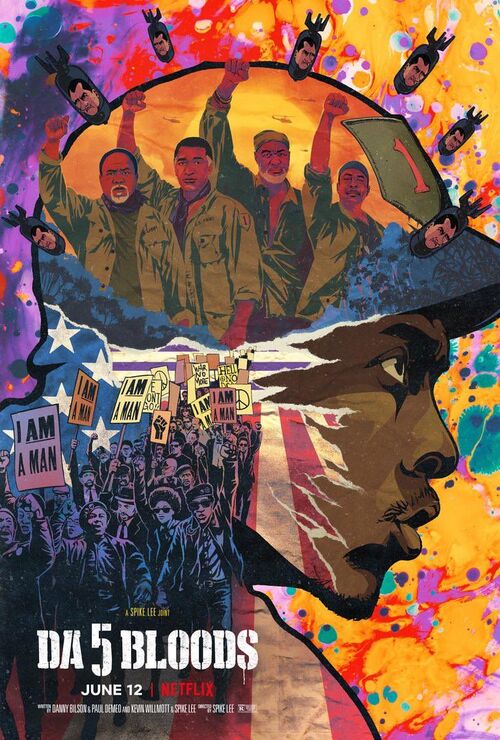
'I Am Not a Witch' (2017) review
 By the time I had sat through Zambian-Welsh director Rungano Nyoni’s debut film, ‘I Am Not a Witch’, there was a small cloud of guilt hovering over my head. It's to do with how hilarious I found this film about ingrained misogyny and blatant human rights abuses.
By the time I had sat through Zambian-Welsh director Rungano Nyoni’s debut film, ‘I Am Not a Witch’, there was a small cloud of guilt hovering over my head. It's to do with how hilarious I found this film about ingrained misogyny and blatant human rights abuses.
It’s really down to Nyoni’s clever approach; making us feel comfortable with a troubling status quo we are in actuality comfortably with and then ramming home the harrowing causalities of a toxic socialization as she makes her anger and grief clear to us.
The idea of witch camps post-oughts is certainly not farfetched for African audiences. In my second year in University, I took a gender class that brought to the fore the bizarre and complex existence of the mostly aged victims of witch camps. Indeed, our director took inspiration from time spent with women in witch camps in Northern Ghana.
Per Nyoni’s experience, some witch camps are even tourist attraction. It is in this detail that she chooses to start her film. Amid the score sporting aggressive strings, tourists, white and brown alike, step out of a bus for a glimpse of inhabitants of this witch camp in an unnamed African country. Nyoni keeps us detached from this sequence, observing through the windows of the empty tour bus.
We get some key details here that set up the farcical tone of ‘I Am Not a Witch’. For one, there are these white ribbons on huge reels that are attached to the camp inmates to keep them in check. A tour guide in a matter of fact tone tells onlookers the ribbons keep the women from flying. They can fly anywhere, to the UK even. He says. The whole arrangement is preposterous and the dozens of accused witches on display, who start hollering and hooting to appease the tourists, know it.
Though inhabitants in real life witch camps are almost always aged, Nyoni opts for the perspective of a child to tell this story. The first glimpse of our reticent protagonist, eight-year-old Shula (Maggie Mulubwa) is likely to elicit fits of laughter for audiences owing to the inscription on her shirt which reads “#Bootycall”.
But for residents of a small village, it’s all fear. Since she came into the village, a lot of strange things have been happening, they tell a police officer. We see a woman drop her bucket of water after a trip to a well and she turns around to find the young Shula looking at her. At the police station, a man also says he was the victim of a grisly axe attack – in his dreams. That accusation is still perfectly reasonable to the villagers.
The police officer listens to the stories with some degree of skepticism as she munches on some tangerines. She, however, reverts to a superior. She contacts a gregarious government official, Mr. Banda (Henry B.J. Phiri), who is being pampered by his wife in a bubble bath when the call comes in. The officer explains to the lax Mr. Banda that Shula is being fingered as a witch. It doesn’t seem like anything out of the ordinary for him until the officer lets him know young Shula hasn’t confirmed or denied being a witch.
The boisterous Banda springs to action and rubbishes the suggestion to transport Shula to an orphanage. Before we know it, Shula is the property of the state and shepherded to the witch camp we visited earlier after an asinine ritual. As part of her initiation, she is put in a small room, unsupervised, and given the option of escaping and turning into a goat or remaining in the camp as a so-called witch. Shula opts for the latter and embraces her white ribbon.
Aside from drawing tourist income, the women in the camp work menial jobs on farmlands. They are cogs in the government’s machine of exploitation and they know it; mockingly revel in it. What choice do they have? Shula, being a novelty, suffers a different form of exploitation. She is wrapped in some weird constricting sackcloth and used to solve petty crimes in the rural community under Banda’s keen eye.
Shula remains a stoic and grounded figure in the absurd world Nyoni crafts in ‘I Am Not A Witch’. Through her, the film transcends the constraints of title and becomes much more than a story about witchcraft accusation. ‘I Am Not A Witch’ is very much about how women are stripped of their agency. Their ambitions and freedoms only extend as far as the white ribbon on the reel.

To break free of these constraints is to be considered subhuman or prey for the unknown world. The goats are sure to become dinner for wolves, Shula is warned. Marriage and its faux validation are presented as a loophole, we will come to learn. But that will only get one so far as the invisible restraints of respectability and submission become apparent.
One of the more striking things about real witch camps is the fact they are double effective refuges for women stomped on by the outside world. There is some measure of respite in the idea of a witch camp Nyoni does not deny. She outlines this bitter-sweet banner by highlighting the strong sense of community in the camp as noted in the beautiful shot of seemingly entangled ribbons on the witch truck conveying a certain web and tissue. The elders try their best to protect Shula and give her hope of a better life; one that involves an education and playtime with peers.
Nyoni, with her story, is also trying to shield Shula at every turn until harsh reality closes in on them. She even, quite cruelly, gives some life to some of Shula’s hopes. But the final act has an air of resignation and indignity singed into affairs as it becomes clear that we spent over 60 minutes watching a girl being dragged around in slavery, like a mere contraption. Phiri as Banda brings the hilarious energy that fires the film’s satire engines, complementing Shula’s reticence seamlessly. But he is such a corrosive figure and the beacon of a damaging patriarchy.
We need not look beyond the way Nyoni directs Maggie Mulubwa. The close-ups of our young heroine's eyes which always look lost and sad even when hilarity ensues around her. Her name means uprooted and this perhaps foreshadows a denouement shrouded in despair. The land she exists in, for the most part, erodes her humanity to the point where life as a goat becomes appealing.
The layers to 'I Am Not a Witch' are very captivating. The satire and humor make this bitter pill of oppression easier to swallow. True to the spirit of African cinema, Nyoni treats freedom as beautiful, priceless and always within reach. Very few things have captured this like the magnificent final shot of the film.
-


